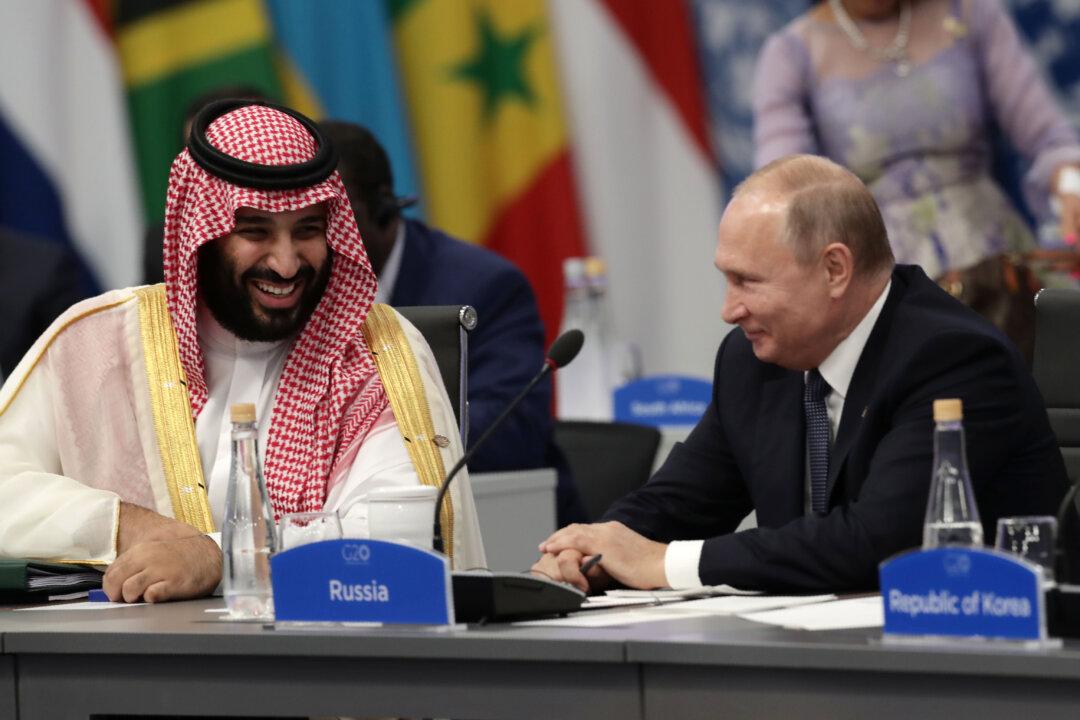Russian President Vladimir Putin went on a whirlwind tour of the Arab Gulf on Dec. 6, during which he and a high-profile delegation visited both the United Arab Emirates (UAE) and Saudi Arabia.
His visit to the two oil-rich Arab states—both seen as key U.S. allies in the region—served to belie Western claims of Moscow’s “isolation” on the world stage.





